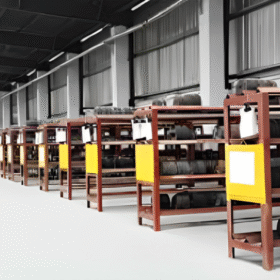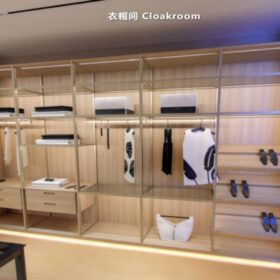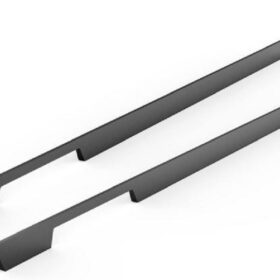The Environmental Impact of Modern Furniture Handles
Modern furniture handles play a significant role in enhancing the aesthetic appeal and functionality of furniture pieces. However, their production and disposal can have a substantial impact on the environment. This article explores the various environmental concerns associated with modern furniture handles, highlighting their material composition, manufacturing processes, and end-of-life disposal.
Materials and Manufacturing
The materials used in the production of modern furniture handles vary widely, from metals to plastics and wood. Metals, such as steel, brass, and aluminum, are often used for their durability and corrosion resistance. However, the mining and extraction of these metals can result in environmental degradation, air and water pollution, and the depletion of natural resources. Plastics, on the other hand, are lightweight and inexpensive, but they contribute to the growing problem of plastic pollution, as they are not easily biodegradable. Wood, although a renewable resource, can also have environmental implications if it is not harvested sustainably. The manufacturing processes involved in creating furniture handles also contribute to environmental pollution. Electroplating, for example, is a common technique used to enhance the surface finish of metal handles, but it can release harmful chemicals into the environment.
Packaging and Transportation
Modern furniture handles are typically packaged in plastic or cardboard boxes to protect them during transportation. These packaging materials can accumulate in landfills, adding to the problem of solid waste. Furthermore, the transportation of furniture handles over long distances can contribute to air pollution and greenhouse gas emissions, especially if they are shipped by air or by vehicles that use fossil fuels.
End-of-Life Disposal
Once furniture handles reach the end of their useful life, they are often discarded in landfills or incinerators. Landfilling contributes to the depletion of land resources and the accumulation of waste materials, while incineration releases toxic chemicals into the environment. Recycling furniture handles is often difficult due to their mixed material composition and the presence of non-recyclable materials, such as plastics. As a result, a significant portion of furniture handles end up in landfills or incinerators, contributing to environmental pollution.
Sustainable Alternatives
To mitigate the environmental impact of modern furniture handles, consumers can opt for sustainable alternatives made from recycled or environmentally friendly materials. Bamboo, for example, is a fast-growing plant that can be used to produce durable and attractive furniture handles. Other sustainable materials include cork, paper, and biodegradable plastics. Additionally, choosing furniture handles that are designed to be easily removed and replaced can extend their lifespan and reduce the need for premature disposal.
Conclusion
Modern furniture handles may seem like small and insignificant components of furniture pieces, but their production, disposal, and packaging can have a substantial impact on the environment. By considering the materials, manufacturing processes, packaging, transportation, and end-of-life disposal of furniture handles, consumers can make more informed choices that minimize their environmental footprint. Embracing sustainable alternatives and promoting the reuse and recycling of furniture handles can help to protect the environment for future generations.
-
2024-11-29Top Trends in Modern Kitchen Cabinet Pulls for 2024
-
2024-11-28The Ultimate Guide to Modern Kitchen Cabinet Pulls- Materials, Styles, and Tips
-
2024-11-27Elevate Your Kitchen Design with These Must-Have Modern Cabinet Pulls
-
2024-11-26Sleek and Stylish- The Best Modern Kitchen Cabinet Pulls for a Contemporary Look










